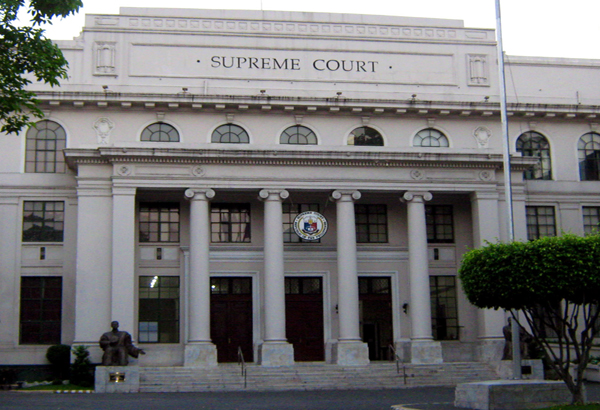The Philippine Supreme Court has denied “with finality” a petition seeking judicial recognition of same-sex marriage, upholding its September decision that the definition of marriage was the prerogative of the legislature.
On 6 Jan 2020 the court published a decision dated 10 Dec 2019 rejecting the appeal of its September ruling rejecting gay marriage. The opinion written by Associate Justice Marvice Leonon noted that while sexual minorities had faced discrimination and marginalization in Philippine society, the court was guided by the text of the constitution, which did not define or restrict marriage on the basis of sex, gender, sexual orientation, or gender identity or expression. Congress, not the courts, made law, he noted.
In 2015 Jesus Falcis, a gay activist, asked the high court to declare as unconstitutional a portion of the Family Code of the Philippines which “define and limit marriage as between man and woman”, arguing the law violated his human rights.
The Deputy Speaker of the House of Representatives, Congressman Eddie Villanueva, an evangelical Protestant minister, told reporters: “The Family Code was crafted to mirror the historical, traditional and religious values of Filipinos on marriage. Marriage, as an inviolable social institution in Filipino life, has always been conceived between a man and a woman. Hence, to nullify such law which bears our values on marriage is tantamount to denying our identity as a people and betraying our deep-held morals. It is not only against God, it is also against ourselves as a people.”
The Roman Catholic Church has voiced strong opposition to changing the law, while the Episcopal Church of the Philippines has not adopted an official stance on the case — though it does not permit its clergy to conduct same-sex marriages.
In August 2017, the bishops of the Iglesia Filipina Independiente or Aglipayan Church — a church in full communion with the Anglican Communion — released a statement asking for forgiveness from the LGBT community for having “shown indifference, and [having] made the LGBT people feel less human, discriminated against and stigmatized.” The Aglipayan statement – dubbed “Our Common Humanity, Our Shared Dignity” – stated the church “must openly embrace God’s people of all sexes, sexual orientations, gender identities and expressions.” However, it does not yet permit its clergy to perform same-sex weddings.










